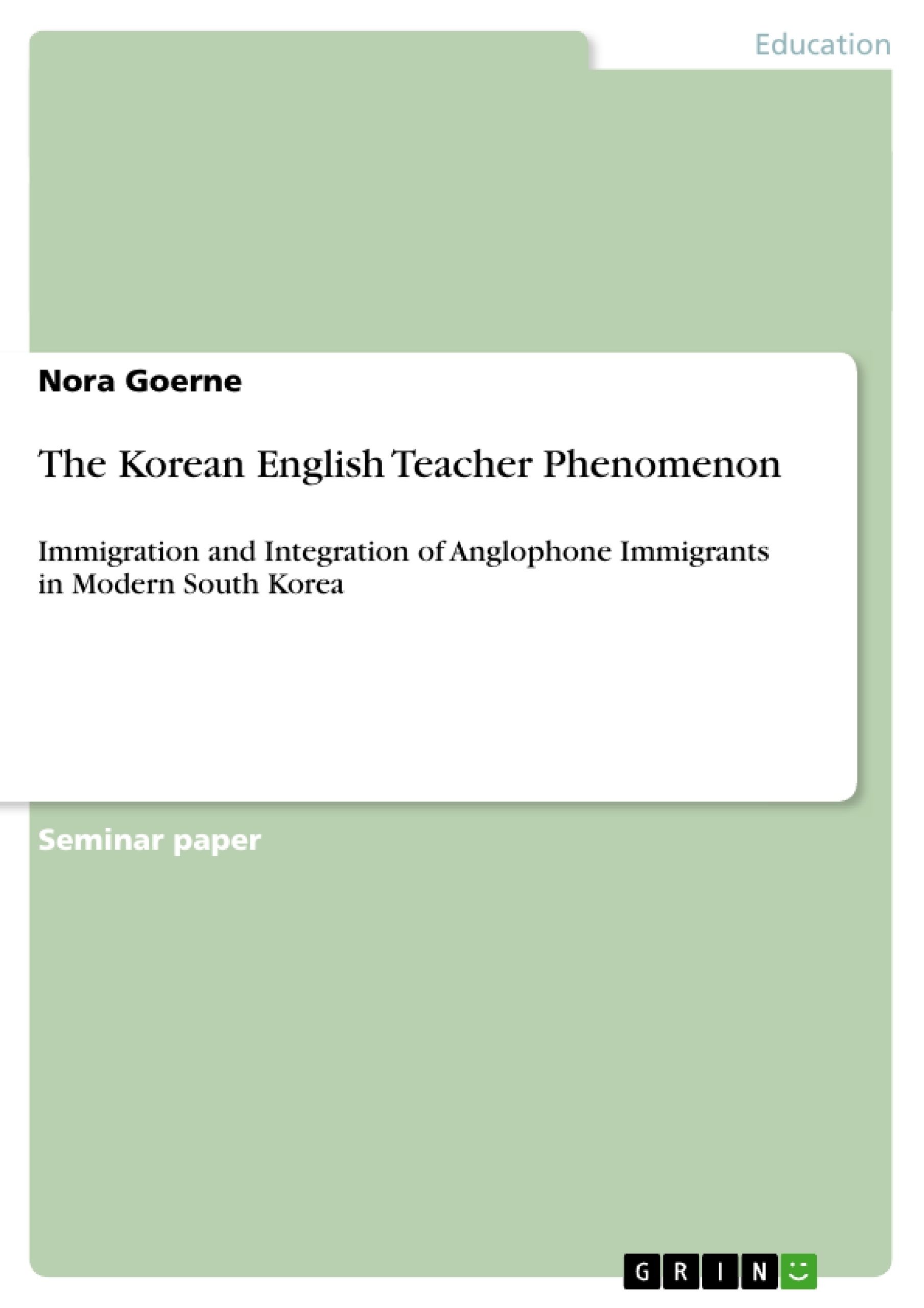In the past decade, the historically homogeneous South Korean society has seen an increase in immigration. While the majority of immigrants still come from other Asian countries, the immigration of Anglophone immigrants is especially remarkable. Most of them are working as English teachers in public and private Korean education institution. The essay at hand traces the motivations of these immigrants and the role of the government by means of literature research. Furthermore, a short survey has been conducted to try to answer the question how well these Western immigrants are integrated in the Korean. Even though South Korea is slowly transforming into a multicultural society, integration still an issue that the government did not yet address thoroughly.
Inhaltsverzeichnis (Table of Contents)
- The Korean English Teacher Phenomenon: Immigration and Integration of Anglophone Immigrants in Modern South Korea
- History of English Language Education in South Korea and the Role of the Government
- The Stance of the Government: Korea - a Country of Immigration?
Zielsetzung und Themenschwerpunkte (Objectives and Key Themes)
This essay explores the phenomenon of Anglophone immigrants working as English teachers in South Korea. It examines the motivations of these immigrants and the role of the South Korean government in fostering this trend. The essay also investigates the integration of these Western immigrants into Korean society through an analysis of individual stories and a short survey.
- The history and significance of English language education in South Korea.
- The role of the Korean government in encouraging Western immigration, specifically for English teaching positions.
- The motivations and experiences of Anglophone immigrants working as English teachers in South Korea.
- The integration of Western immigrants into Korean society.
- The challenges and opportunities of South Korea becoming a multicultural society.
Zusammenfassung der Kapitel (Chapter Summaries)
The first chapter provides an overview of the history of English language education in South Korea and highlights the government's role in promoting English fluency. It describes the increasing demand for native English speakers as teachers and the rise of English education programs like EPIK. The chapter also emphasizes the significance of English skills for Korea's economic competitiveness and cultural exchange.
The second chapter examines the government's stance on immigration in South Korea and its strategy for attracting highly skilled professionals, including English teachers. The chapter points to the government's recognition of the emerging multicultural society and its efforts to create a welcoming environment for immigrants.
Schlüsselwörter (Keywords)
This essay focuses on the Korean English Teacher Phenomenon, exploring the immigration and integration of Anglophone immigrants in modern South Korea. It examines key themes such as English language education, economic competitiveness, cultural exchange, ethnic nationalism, immigration policy, and the emergence of a multicultural society. The essay also draws upon the concept of "goose dads" and analyzes the role of government programs like EPIK and TaLK in attracting and supporting foreign teachers.
Frequently Asked Questions
What is the "Korean English Teacher Phenomenon"?
It describes the significant increase in Anglophone immigrants moving to South Korea to work as English teachers in public (EPIK) and private (hagwon) educational institutions.
Why does the Korean government encourage English teachers to immigrate?
The government sees English fluency as vital for international economic competitiveness and cultural exchange, leading to programs like EPIK and TaLK to attract native speakers.
How well are Western immigrants integrated into Korean society?
Integration remains a challenge. While Korea is becoming a multicultural society, ethnic nationalism and cultural barriers still pose issues that the government has not yet fully addressed.
What are "goose dads" (kirogi appa)?
The term refers to Korean fathers who stay in Korea to work while their wives and children live abroad in English-speaking countries for better education, highlighting the intense focus on English in Korea.
What are the motivations for teachers to move to South Korea?
Common motivations include the opportunity for cultural exchange, competitive salaries, and the desire for international work experience in a modern East Asian society.
- Arbeit zitieren
- Nora Goerne (Autor:in), 2013, The Korean English Teacher Phenomenon, München, GRIN Verlag, https://www.grin.com/document/233213



